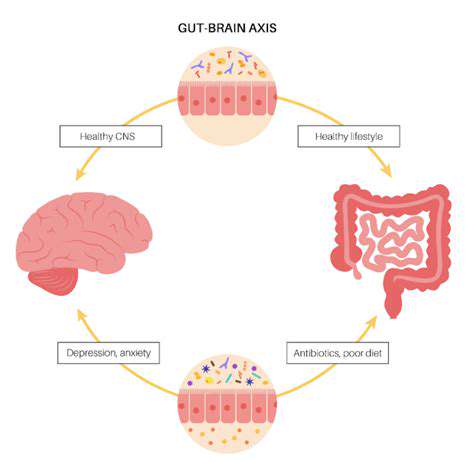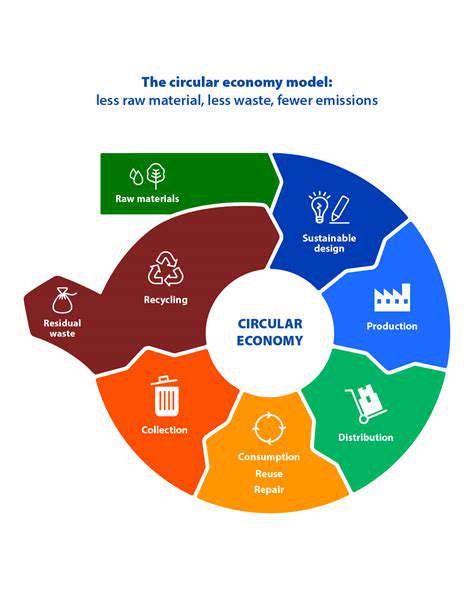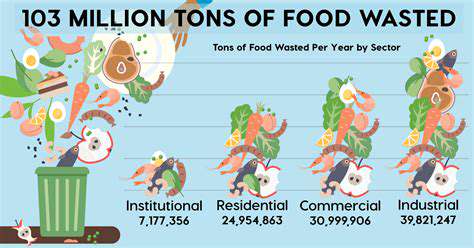The Role of Emotions in Eating Habits
The Biological Underpinnings of Emotional Eating
Our emotional responses are deeply intertwined with our physiological processes, influencing everything from our heart rate to our appetite. When we experience strong emotions, such as stress, anxiety, or sadness, our bodies release hormones like cortisol and adrenaline. These hormonal fluctuations can disrupt the delicate balance of our neurochemical systems, leading to cravings and altered food choices. Understanding this biological interplay is crucial for developing healthier eating habits, as it helps us recognize the underlying causes of emotional eating rather than simply addressing the symptoms.
The Impact of Stress on Food Choices
Chronic stress is a significant factor in developing unhealthy eating patterns. Feeling overwhelmed or pressured often leads to comfort eating, where individuals seek solace and temporary relief in high-calorie foods or processed snacks. These choices, while providing a short-term emotional fix, can exacerbate stress in the long run due to the negative health consequences. Recognizing this cycle and learning healthy coping mechanisms are essential steps in managing stress and improving overall well-being.
Emotional Regulation and Food
Developing emotional regulation skills is a cornerstone of mindful eating. By learning to identify and manage our emotions without resorting to food as a crutch, we empower ourselves to make healthier choices. This involves understanding our emotional triggers, practicing mindfulness techniques like deep breathing or meditation, and building a support network to navigate stressful situations effectively. These strategies help us cultivate a more balanced relationship with food, reducing the likelihood of emotional eating episodes.
The Psychology of Reward and Cravings
Our brains are wired to associate certain foods with pleasure and reward. The taste, smell, and texture of these foods trigger the release of dopamine, a neurotransmitter linked to pleasure and motivation. This inherent reward system can contribute to cravings, particularly for highly palatable and processed foods. Understanding the psychological mechanisms behind these cravings is essential to developing healthier food choices, focusing on nourishing foods that satisfy our body's needs without relying on artificial rewards.
Cognitive Biases and Eating Behaviors
Cognitive biases can significantly influence our eating habits, often leading us to make impulsive decisions or choices that contradict our long-term health goals. For example, the availability heuristic, where readily available options are perceived as more desirable, can lead to reaching for unhealthy snacks over healthier alternatives. Recognizing these cognitive biases allows us to challenge our automatic thoughts and make more conscious food choices. This requires self-awareness and a commitment to critically evaluating our food decisions.
Mindfulness and Intuitive Eating
Mindful eating practices, like paying attention to hunger and fullness cues, can help us develop a more intuitive relationship with food. By slowing down and savoring each bite, we can become more attuned to our body's signals, allowing us to eat only when truly hungry and stop when satisfied. This approach prioritizes physical sensations over emotional impulses, fostering a healthier and more balanced relationship with food. Regular practice of mindful eating can lead to increased self-awareness and a greater understanding of individual needs.

The Connection Between Gut Health and Mental Well-being

The Role of Gut Microbiota in Overall Health
The gut microbiome, a complex community of microorganisms residing in the digestive tract, plays a crucial role in maintaining overall health. These bacteria, fungi, and viruses interact with the host's immune system, influencing various bodily functions, from digestion and nutrient absorption to immune response and even brain function. A healthy gut microbiome is essential for a robust immune system and can impact mood and cognitive function. Maintaining a balanced gut microbiome is vital for preventing and managing a range of health issues.
Disruptions to this delicate ecosystem, often caused by factors like diet, stress, and certain medications, can lead to dysbiosis, an imbalance in the gut microbiota. This imbalance can contribute to various health problems, including digestive issues, immune disorders, and even mental health concerns. Understanding the intricate relationship between the gut and overall health is critical for developing effective preventive and therapeutic strategies.
Dietary Impact on Gut Microbiome
The foods we consume significantly impact the composition and function of our gut microbiome. A diet rich in fiber-rich fruits, vegetables, and whole grains provides essential prebiotics, which nourish beneficial gut bacteria. These beneficial bacteria produce important byproducts that are crucial for our overall health, such as vitamins and short-chain fatty acids.
Conversely, a diet high in processed foods, sugar, and unhealthy fats can negatively influence the gut microbiome, potentially leading to an imbalance. These dietary choices can encourage the growth of harmful bacteria and reduce the diversity of beneficial microbes. Dietary changes can significantly impact gut health, impacting overall well-being.
Stress and Its Influence on Gut Health
Chronic stress is a significant factor that can affect gut health. Stress hormones, such as cortisol, can alter the balance of gut bacteria, potentially leading to dysbiosis and increased inflammation. This disruption in the gut's delicate ecosystem can contribute to various health issues and affect overall well-being.
Stress management techniques, such as mindfulness, exercise, and relaxation practices, can help mitigate the negative effects of stress on the gut microbiome. Finding healthy ways to manage stress is crucial for maintaining a balanced gut microbiome and overall health.
Probiotics and Prebiotics for Gut Health
Probiotics are live microorganisms that, when consumed in adequate amounts, confer a health benefit to the host. They can help restore balance to a disrupted gut microbiome and improve digestion. A wide variety of fermented foods, like yogurt, kefir, and sauerkraut, are rich in probiotics.
The Connection Between Gut Health and Mental Well-being
Emerging research suggests a strong correlation between gut health and mental well-being. The gut-brain axis, a bidirectional communication pathway between the gut and the brain, plays a significant role in this connection. Changes in the gut microbiome can influence neurotransmitter production and brain function, potentially impacting mood and cognitive function.
Maintaining a healthy gut microbiome may contribute to improved mental health outcomes. This important connection highlights the need to prioritize gut health as part of a holistic approach to well-being.












